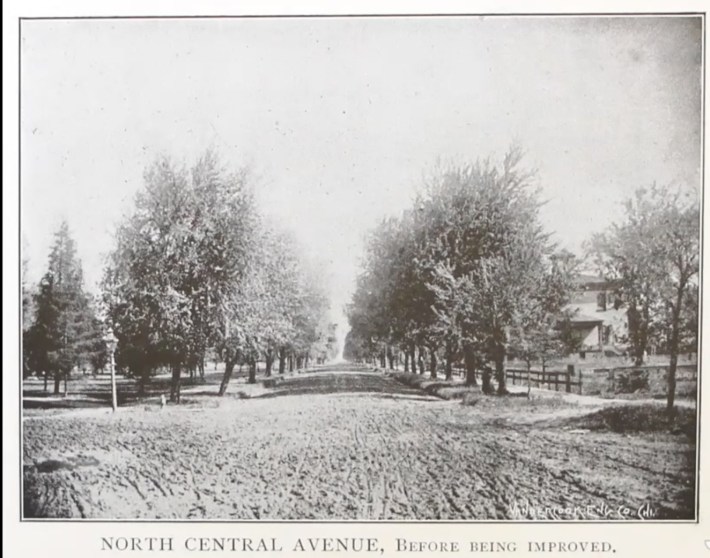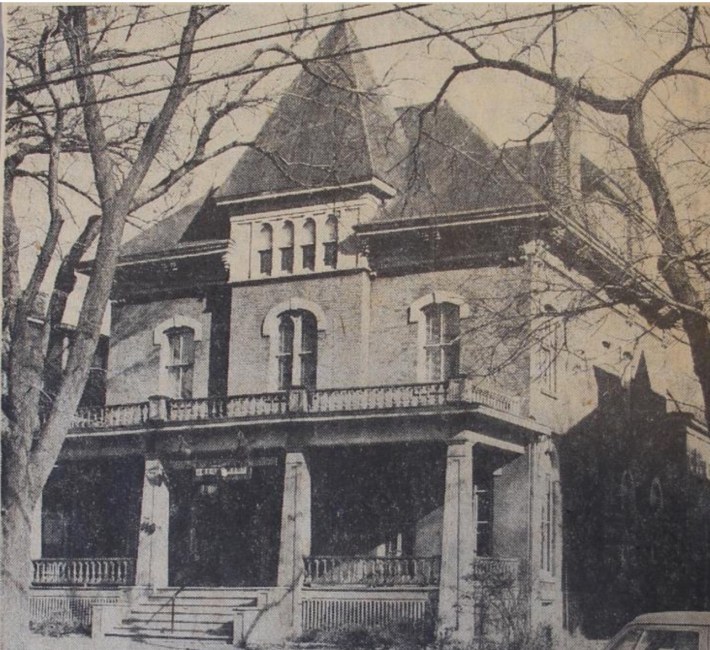Austin’s Oldest Building Is On Its Way To Becoming A City Landmark
[ad_1]
AUSTIN – The oldest building in Austin could soon be an official Chicago landmark.
The Commission on Chicago Landmarks unanimously voted Thursday to close the 152-year-old Seth Warner House on N. Central Ave. 631 to be called a landmark.
The Warner House was built by Seth Warner in 1869 and is so old that it is older than the neighborhood that surrounds it, as Austin was barely populated until 1899 when Austin was incorporated into the city of Chicago.
Credit: Provided. Warner House was one of the first buildings in the area to eventually be incorporated into Chicago as Austin.
The sheer age of the house makes it a cultural treasure, as it “embodies the early development of Chicago when outskirts like Austin were unincorporated rural settlements,” said Matt Crawford, architectural historian for the city’s landmarks division.
Warner House was built on land that originally included a small farm and orchard. The home’s “subtle but elegant” design attracted people who were drawn to the opulent home on a vast prairie, said Max Chavez, director of research at Preservation Chicago.
Shortly after the house was built, it became a local landmark that “would show people what life in Austin could be like,” Chavez said. People were encouraged to settle in Austin, which contributed to a population boom and put the area on the road to town, he said.
“Austin was largely undeveloped land at the time, and Warner saw an opportunity here to develop the area by attracting people with the space and respite that the largely pristine neighborhood offers,” said Chavez.
 Credit: ProvidedWhen Warner House (right) was originally built, the surrounding land was vacant and Central Avenue was not yet paved.
Credit: ProvidedWhen Warner House (right) was originally built, the surrounding land was vacant and Central Avenue was not yet paved.
The Warner House is also historically significant as it served as a hotel called The Elms Resort for tourists who flocked to Chicago for the World Columbia Exposition in 1893, Crawford said.
The House’s contributions to Chicago’s musical heritage also justify the landmark award, Crawford said. From 1924 to 1979, Warner House was home to three renowned music academies: the Austin College of Fine Arts, the Austin Academy of Music, and the Austin Conservatory of Music. The schools trained around 31,000 students, according to the city’s historical records.
“The house has continued to serve the Austin community in a fantastic way,” said Chavez. “In the walls of the Warner House, the youngsters in Chicago learned the gift of making beautiful music.”
The home can also qualify for landmark status as it was built and owned by a historically significant person. Warner was one of Chicago’s earliest settlers, arriving in the area in 1837, the year the city was founded.
Warner was also a notable patron of the arts and an abolitionist who “hosted numerous speakers and political meetings calling for an end to slavery and supporting the Union cause during the Civil War,” Crawford said.
The Warner House was built in the Italian architectural style, which is a rarity in Chicago today as the style was only popular in a narrow window between the 1860s and 1870s.
The house has many of the features of the style, including carved wood details on the exterior, plasterwork, marble fireplaces, black walnut interiors, narrow windows with segmented and curved arches, and cut stone paneling.
It is currently a single family home and its owners support the landmark journey.
After the commission starts the process, the city’s planning department will examine how the designation could affect the community and hold public hearings to collect feedback.
The commission will then have a final vote on whether to recommend the listed designation to the city council, which will make the final decision on Warner House.
Subscribe to Block Club Chicago, an independent, journalist-operated newsroom under 501 (c) (3). We make every penny that reports from Chicago’s neighborhoods.
Subscribe already? Click here to support Block Club with a tax-deductible donation.
Listen to It’s All Good: A Block Club Chicago Podcast here:
[ad_2]

